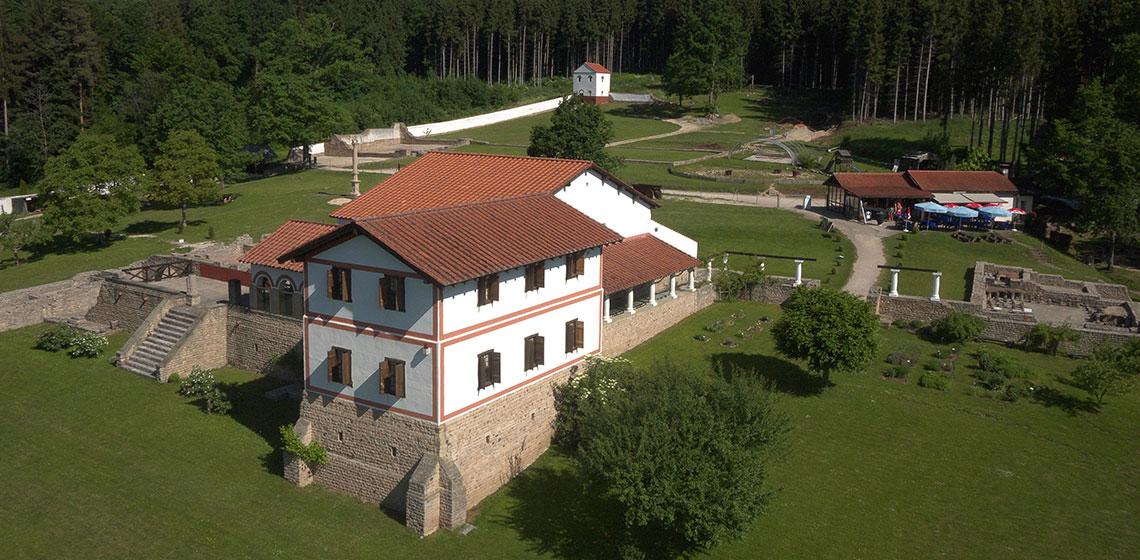Römisches Freilichtmuseum Hechingen-Stein (DE)

In the first century AD, a Roman Villa Rustica was constructed at Hechingen-Stein. It remained functioning for 200 years. In 1973, traces of the forgotten villa were discovered by the mayor of Stein, Gerd Schollian in the Teufelbach forrest. The Landesdenkmalamt Thübingen excavated over the years 1987 – 1981 the main buildings and the baths. Since 1992 new excavations took place uncovering among others the temple.
Already the first excavations aroused much public interest and the wish for a museum was uttered several times. Soon the association „Förderverein Römisches Freilichtmuseum Hechingen-Stein e.V.“ was settled for this purpose. After years of planning starting in 1985-1991, first reconstructions on true size were made of the south-eastern Eckrisalit, parts of the northern corridor and a third of the Porticus could be built. Of course not every detail is 100% sure, but the reconstruction offers a great way of teling the public how such a villa could have been like. There is a small reconstructed temple area where information about Roman religion is given. It is also home to some copies of statues of Roman Gods from all over Baden-Württemberg.
A second phase of reconstructions kicked off in 2005 adapting the old reconstructions to new insights. It had for example become clear that the inner court in Italian villas might have been open, but this was not the case in Hechingen-Stein. Looking back again at the original site, it was clear that even back then, they had made changes and so the open court of the 1980s was changed to cover about a third if the inner court by now. A dining room (triclinium) has been built at the original site which includes a fully functioning Rman floor heating system. Upstairs is an exhibition about childhood in the Roman Empire, a bedroom and a storage.
In total, about a quarter size of the impressive villa has now been built up again, including small annexes.
The rooms are decorated with wall paintings and furniture. Information is given by means of a slide show, models of the buildings and many text panels across the site. Original artefacts are on display as well showing construction technique, agriculture, food and nourishment et cetera.
